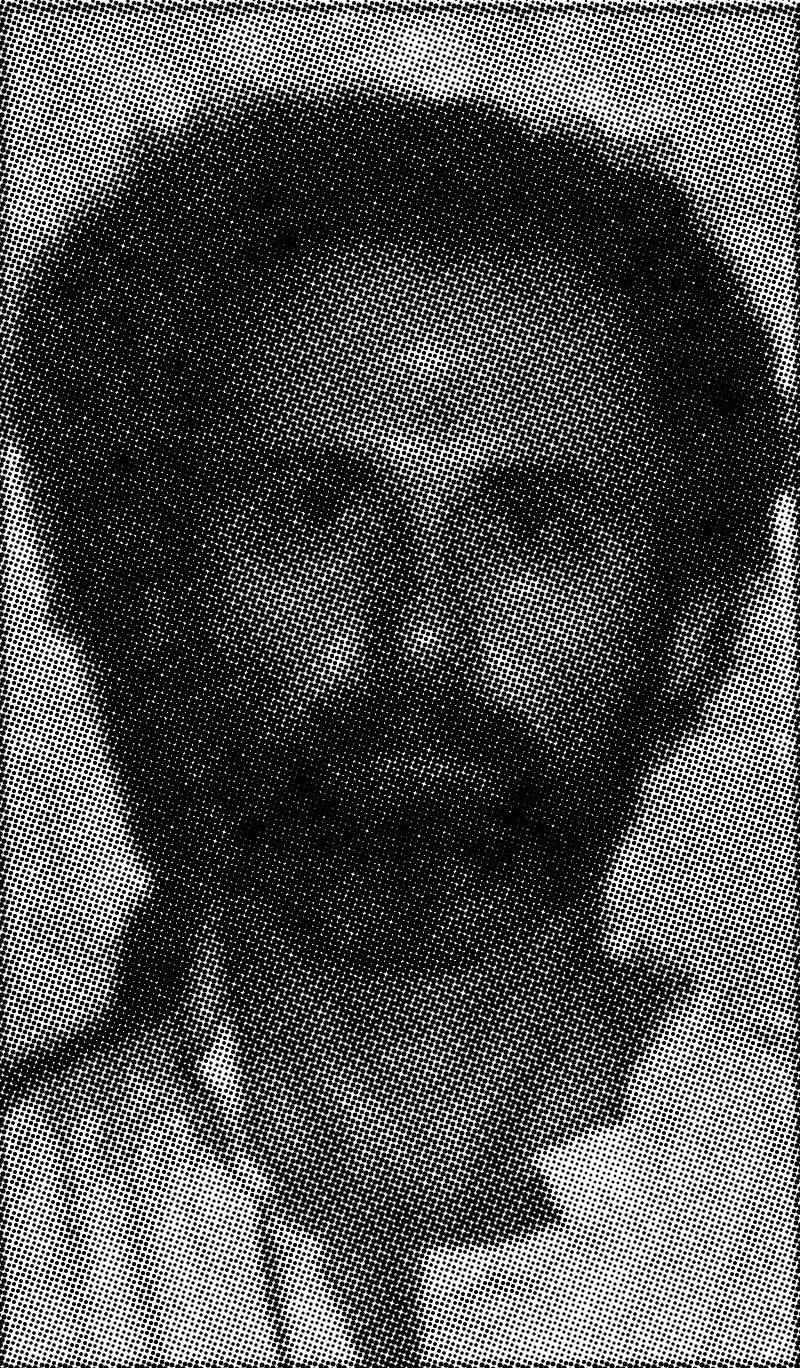
The Police
But even the best laid plans, as the poet said, sometimes go awry.
— The Cowboy Angel Rides
Brushing her hair, her face dirty, obviously just awake, she opened the door to the tiny house. Mesquite detectives had knocked at the address Wendy had given them only to realize that she was living in the tumbledown shack in back.
Two days after Wendy’s escape, Mesquite detective Barry Woodrow had handed the report to his partner, Donnie James. “I know this sounds like a deal,” Woodrow had told him. James looked at the offense report: duct tape, closet, kidnap, mantras. Yeah, it read like a “deal,” police jargon for crazy people charging each other with made-up crimes. Still, there was something about it that made both James and Woodrow wonder.
Now, the officers could judge her story for themselves. They took Wendy to the station where she spent 90 minutes writing a 17-page affidavit. From her heavy slang, James could tell she was street-wise. “But she was articulate; she wrote her own statement,” James says. “It was so detailed, I couldn’t get over it.”
The Kroger employees confirmed her description of her escape; the person who waited on them at the drive-through pizza restaurant remembered the girl with the duct tape on her eyes. “We collectively agreed she was telling the truth,” says Sgt. Gary Westphal.
For the first time in her life, Wendy was on the side of the law. She was amazed: The police were taking her complaint seriously.
But how to find this Bill? Kroger employees had watched as Bill ran out to his car, then rushed back inside and asked a sack boy if he had seen the woman he came into the store with. The sack boy said no, then Bill hurried back outside, jumped into his car and sped off. That was enough time for two employees to write down the vehicle’s license number.
The number led them to a red Nissan with a black interior, registered to a young golf pro in Fort Worth. He had an alibi and didn’t fit the description Wendy gave. Besides, Wendy clearly remembered the interior of the car was gray, not black.
Westphal and Captain Larry Sprague drove Wendy around the area of the Kroger for hours, but nothing looked familiar. Then Wendy remembered that Bill’s purchase at Home Depot smelled like chlorine. And that he had asked for a pen at the checkout. That must mean he wrote a check.
Woodrow pulled the records of hundreds of purchases at Home Depot for the 45-minute period before her escape at 6:48 p.m. He hit “bro tabs,” purchased at 6:06, and discovered those were chlorine tablets for a hot tub. The purchaser: William Robert Cathey.
Woodrow traced the driver’s license number and got an address on Barnes Bridge Road. Police records showed he had been arrested at Sears in Town East in 1985 for shoplifting. Though no merchandise had been found on him, Cathey had been charged with assault after getting into a scuffle with store employees. He was acquitted and later sued Sears and won a $20,000 settlement.
But the alleged shoplifter had been captured on videotape. Police got the tape from Sears security and showed it to Wendy. She watched as people passed in front of the camera; when Cathey appeared on the screen, Wendy instantly shouted, “That’s him!”
To make sure they had the right guy, Westphal drove Wendy down Barnes Bridge Road and through the alley, careful to say nothing when they neared his address. Wendy didn’t acknowledge the house from the front, but when they approached it from the back, she recognized the skylights of a two-story home she’d seen over the fence.
Wendy had made police a map of the back yard: the hot tub, the sun deck, a brick toolshed. They stopped, and Westphal asked her to look through a knothole in the fence. Wendy got back in the car, white and shaking. It was the house.
On June 14, two weeks after Wendy’s escape, 49-year-old Bill Cathey was arrested and charged with aggravated kidnapping. He was returning from an early morning trip to the post office, and there was a pistol on the front seat of his car.
For people at the university, friends from high school, neighbors, most of the women he dated, Bill Cathey’s arrest was simply the first of many shocks.
But one woman was not surprised at all.
• • •
The Girlfriend
Roger’s demise was lengthened because he had to wait for someone to lead him astray. Roberta found that she could simply offer her body to the world. When a girl makes that discovery, she becomes a woman. Roberta discovered the power and independence that resides in a lady’s favors. And she used them.
— The Cowboy Angel Rides
They met on a blind date in December 1985. Diane Hodges was working at a bank. A fellow teller was dating an Oak Cliff businessman named Ron Harris. At 23, Diane, a pretty, petite blonde, was going through a divorce after marrying at 18. The teller convinced her to meet Harris’ old friend from Sunset High.
Diane didn’t like Dr. Bill Cathey at first. She didn’t think he was handsome, and he was in his mid-40s, a little old for her. But her misgivings slowly melted away. “He commanded respect—he made you look at him,” Diane says. And he was so literary, so learned. “I enjoyed talking to him.”
Cathey left sweet cards and tapes of her favorite music in her mailbox or on her car. While they were in the hot tub, he quoted poetry from Shakespeare and Robert Frost. He showered her with compliments, praising her decision to leave her husband, commending her on how she parented her 3-year-old daughter. He taught the little girl “Fire and Ice,” a Frost poem. “He charmed his way into my life,” says Diane.
From the very beginning, a lot of things seemed mysterious about Cathey. He never seemed to work, but he always had a lot of money, three cars, and nice clothes. He claimed to have therapy patients who came to his home, but she never saw them. He wouldn’t answer the door unless the visitor had an appointment, and he mowed his yard at night, when no one could see him.
And Cathey was always trying to hypnotize her; he wanted her to use the ISIS machine, to move her brain waves to a “more open, receptive” state.
Soon after she moved into his house in August 1986, it seemed that Bill Cathey began to take over her life. Her will. “He said if I would just open my mind to his ideas, it would all be all right,” Diane says.
In the second year of their relationship, Cathey introduced Diane to the mantra: I must obey. “I thought it was all stupid,” she says. But she went along.
Cathey’s ideas grew increasingly bizarre. He wanted Diane to get various parts of her body pierced with gold jewelry. And he wanted her to have sex with different partners while he watched and participated. Diane refused to get anything pierced, but she went along with some sexual adventures. “I learned how to make it not bother me,” she says. “It was like I was acting.”
Slowly, Diane began to see all the different Bill Catheys. There was the kind, sensitive man who waited on her at dinner, who encouraged her to read, to improve her mind. There was also the man who was filled with rage at women. “He hated women because they could choose when to have sex,” says Diane. “He thought women had all the power in relationships.” Several times, his rage exploded into violence, and he hit her.
Finally, there was Bill Cathey the criminal.
She soon learned that while he did have real estate investments, his main income came from theft. Cathey often donned a postal uniform and stole checks and credit cards from mailboxes in Highland Park, Bent Tree, and other affluent neighborhoods.
He had photography equipment that allowed him to take his own picture in a disguise, then create a driver’s license with an identity to match the checks. He would get valid license numbers while eavesdropping on people cashing checks at stores. He obtained birth certificates of dead people and created new identities.
He didn’t stop at forgery. Cathey stole virtually everything he needed: clothes, food, a toaster, even the gifts he gave her. He tampered with the meter at his home in order to steal electrical power. He stole cars, then altered their license plates so that the plates and VIN numbers would match an identical car owned by someone else. “It was a principle with him,” Diane says. “Why pay for it when you can have the challenge of stealing?”
But as a criminal, Cathey had scruples: He would never steal from a mom-and-pop store, only from large corporations and people who were likely to have insurance, whose banks would swallow the loss.
Cathey admitted that he had stolen since he was old enough to shop by himself. He shoplifted his way through high school and college, and in 1974, while he was teaching in Corpus Christi, Cathey had been arrested in Chicago with $880 in counterfeit $20 bills. He pleaded guilty and was sentenced to two years probation. She learned that Cathey had a scheme for his life: The forgeries were designed to get enough money to set up a real estate scam. The money from the real estate con would then set him up for a really big score. Cathey talked of a third part to the scheme, but never revealed it.
But she knew he was serious about it when he flew to Corpus Christi to burn one of his rent houses for the insurance. And when some kids ripped shingles off his rent house in Garland, he tore up the interior of the house before reporting it to the insurance company.
“He was smarter than everyone else,” says Diane. “The rules didn’t apply to him.” Police, he told her, were stupid. Idiots.
On Christmas Eve 1987, Diane remembers, the police came to the office where she worked to ask questions about Cathey. He had been arrested and charged with the attempted robbery of a pizza restaurant in Mesquite. An employee identified him as the man who was banging on the locked door of the restaurant with a gun. Diane knew nothing about the incident. Cathey was later tried and acquitted because—though he had a gun, a rubber mask, radio gear, a fake hand grenade, a holdup note, and a map of a nearby Sunset Savings—he had not specifically asked the pizza clerk for cash.
In late August 1988, Cathey told her he had read a news report about the discovery of the bodies of a man named Don Biggs and a woman, chained to an 80-pound weight and submerged in Lake Ray Hubbard, not far from Cathey’s home. Cathey was antsy, paranoid, as if he expected the police to arrive at his door any minute to question him about the murder.
Diane remembered Biggs, a businessman turned drug supplier. He and another woman had participated in a sexual foursome with Diane and Bill, one that Bill videotaped. In October 1988, after he hit her a third time, Diane moved out.
That year, Cathey had filed for bankruptcy, saying he had earned only $4,000 in 1987. He returned to academe with a vengeance, teaching at three or four colleges at a time.
But he refused to accept that Diane was leaving for good. He called her constantly and followed her to work. He wrote letters making veiled threats. After hearing Diane had become interested in opera, Cathey placed the score to an Italian opera on her windshield. She took it to a knowledgeable friend who recognized the story, in which the hero murders the heroine.
At times, his threats were less poetic. One morning in August 1989, Cathey called to ask if she had seen the news the previous night: A man had killed his estranged wife in Fort Worth, then turned the gun on himself. “He had to kill himself, but it was worth it,” Cathey said. That was enough: Diane got a protective order against him.
In June 1991, when the story of Cathey’s arrest hit the news, Diane Hodges knew instantly: Wendy’s story was true. The young woman might have been a criminal out of necessity. But Diane knew that Bill Cathey was one for the sheer thrill of it.
• • •
Author








